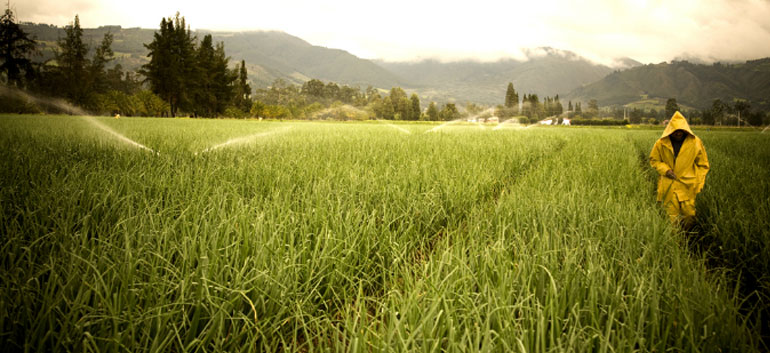Colombia President Juan Manuel Santos is looking to reform a 1994 law prohibiting vacant lands from being acquired by private enterprises. The president wants to reserve this land for land distribution as agreed during ongoing peace talks with rebel group FARC.
In one of the three recently published peace negotiation agreements between the government and the FARC, agricultural land reform was a major — if not the most important — component.
Clause in partial peace agreement
“For the deconcentration and promotion of more equitable land distribution, the national government will create a Land Fund for free distribution. The land fund will distribute (xxx) million hectares of land in a period of (xxx) years.”
The negotiations so far failed to agree on how much land will be distributed and over how long.
MORE: Colombia’s peace deals in depth: Rural reform
The president’s reform would effectively open up much of that land to potential ownership and development structures of both national and foreign private enterprises.
In a recent interview with Semana, his first since winning re-election this June, the president described the reform not as “an intention to lose public lands, but to lease them and create programs and projects that can benefit each region and its rural populations…the private sector is very interested in the post-conflict.”
If acquired and developed, rural and vacant areas would become “Rural and Economic Development Zones (ZIDRE) – geographical areas isolated from urban centers with high costs of productive adaptation, low population density, high rates of poverty, lack of minimum transport and marketing infrastructure, and for their agrologic and climatic characteristics, are inappropriate for developing family production units.”
Allowing private ownership and investment on these lands would be aimed at reducing poverty, enabling economic land use, promoting conservation, improving the soil and promoting farmers’ access to land and employment.
With that said, much of these lands that could potentially go directly to displaced conflict victims or the country’s rural community, which is the FARC’s principle constituency, will now be in the hands of private companies and entrepreneurs, potentially putting the government and FARC at a standstill.
Reforming this law will certainly start a larger debate over the proper use of large, unused land. But as Santos said in the interview, “the agriculture and land accords that we have reached will have to be carried out with or without the FARC.”
The unequal distribution of land has widely been signaled to be one of the main causes of Colombia’s 50-year-long armed conflict.


